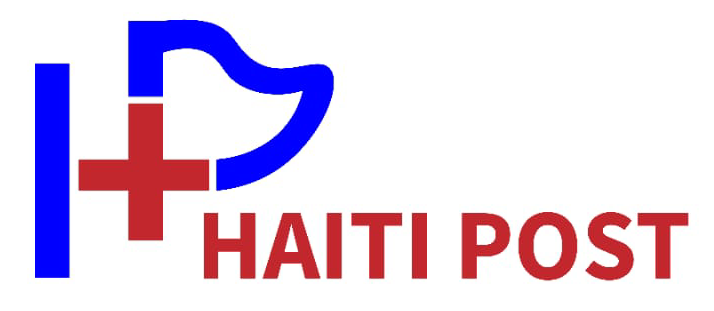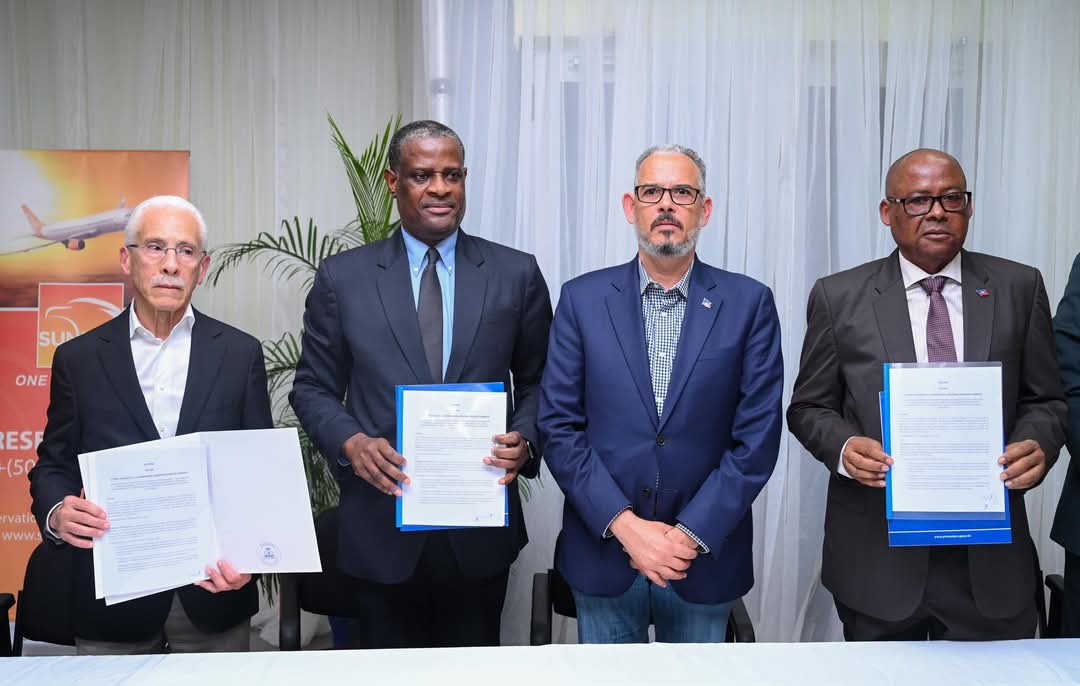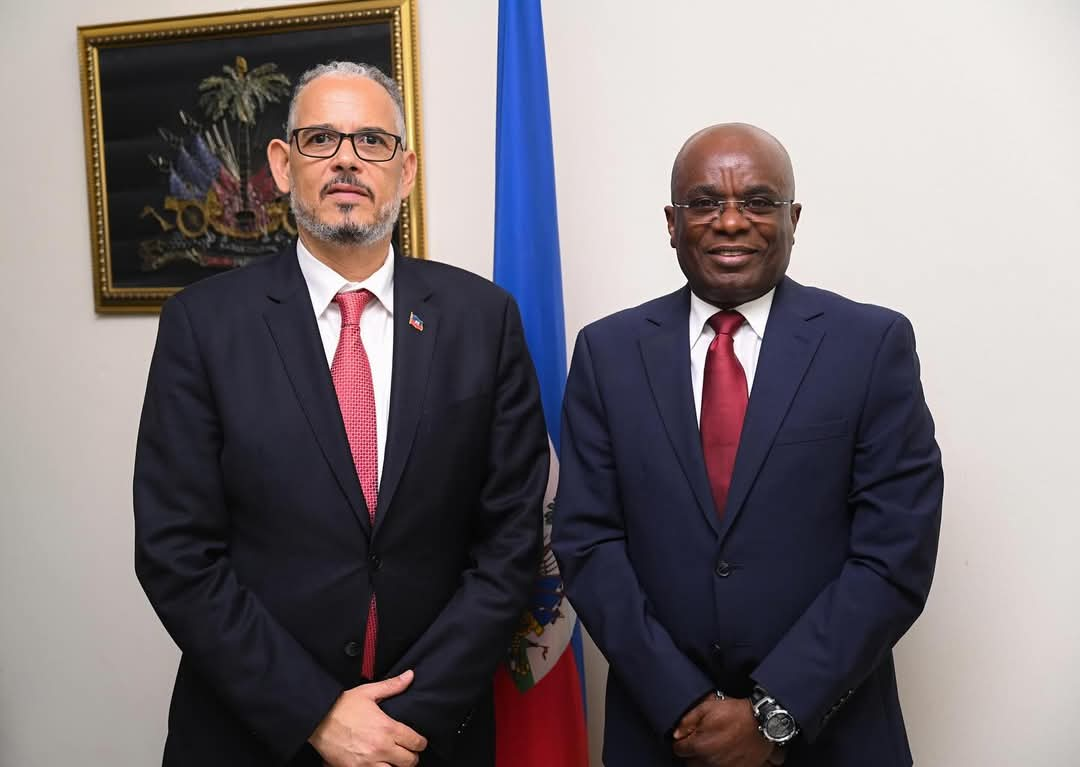In a country where armed groups increasingly control land routes and hold entire regions hostage, the Haitian government has taken a strategic leap—toward the skies. On Thursday, June 5, 2025, Prime Minister Alix Didier Fils-Aimé oversaw the signing of a public-private agreement with Sunrise Airways to resume domestic flights starting June 12. The destinations include Cap-Haïtien in the north, Jacmel in the southeast, and Jérémie in the southwest—areas now cut off by land due to gang activity.
The move comes as two of Haiti’s most critical ground arteries have become impassable. In the south, the Martissant corridor has been paralyzed for months under the grip of the gang leader Ti Lapli. Meanwhile, in the north, access via Canaan has been seized by another gang, led by Jeff Gwo Lwa. These choke points have effectively severed the capital from the rest of the country, disrupting commerce, humanitarian efforts, and everyday mobility.
Rather than retreat, the Haitian state is repositioning. By restoring domestic air links, officials are reasserting national presence—not by reclaiming the roads just yet, but by dominating the skies.
“This is not just a transportation agreement. It is a declaration of sovereignty,” said Prime Minister Fils-Aimé at the signing ceremony. “If the ground is blocked, the Republic will rise above it.”
The deal with Sunrise Airways was signed in the presence of Minister of Economy and Finance Alfred Métellus, the Director General of the National Airport Authority Yves Ducarmel François, and the airline’s CEO. The collaboration aims to provide immediate relief for interregional travel, ease the movement of goods, and maintain essential state connectivity amid a fragmented national landscape.
While the resumption of air travel is, on paper, a logistical achievement, in practice, it sends a far more powerful message: the state is not absent, and it is prepared to innovate to maintain unity. It is a symbolic recapture of the national space—literally and figuratively.
Haitians in the diaspora, business leaders, and NGOs have welcomed the decision as a necessary, albeit temporary, fix to a country increasingly divided by violence. The Sunrise flights will serve as a crucial lifeline to regions where ground travel is impossible, allowing emergency medical transport, the delivery of humanitarian aid, and a means of reconnecting families and institutions.
But the deeper issue remains: Who controls Haiti’s land? Many observers warn that the success of air-based solutions must not distract from the long-term need to regain territorial integrity through well-planned security, disarmament, and development efforts.
“The airspace is symbolic, but the people live on the ground,” said a Port-au-Prince-based security analyst. “The real challenge is still ahead.”
In the meantime, the Haitian government is taking the battle for legitimacy to the skies. Each domestic takeoff is not just a flight—it’s a message. A message that the state, though battered, is still flying.





